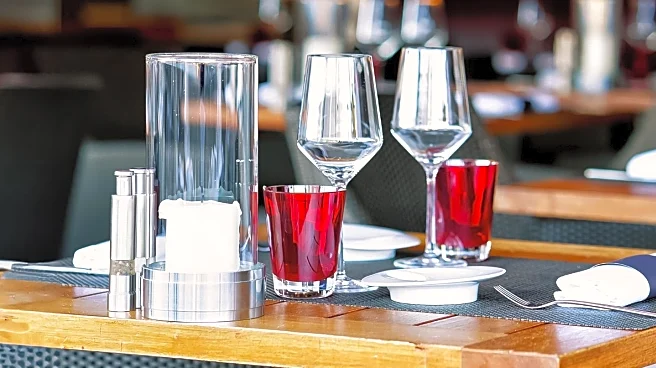What's Happening?
The ritual of tasting wine before a server pours for the table serves a crucial purpose: verifying the wine's quality. This initial pour allows diners to detect if the wine has spoiled, often due to poor storage conditions or defective corks, resulting in 'corked' wine. Corked wine emits musty odors reminiscent of wet cardboard or mildew, and tastes unlike the winemaker's vision. The aroma check before tasting helps identify problems, protecting the investment in the wine. Experts explain that corked wine is caused by a compound called trichloroanisole (TCA), which contaminates the cork, bottle, or wine during various stages of production or storage. While corked wine isn't harmful to consume, it detracts from the drinking experience. Diners are encouraged to send back corked bottles, as most restaurants will replace them without charge.
Why It's Important?
Understanding the wine tasting ritual is important for consumers to ensure they receive quality products and value for their money. Corked wine, though not harmful, can significantly impact the dining experience, making it crucial for diners to recognize and address the issue. The prevalence of corked wine, estimated between 1% to 7% of bottles, highlights the need for vigilance in wine service. This practice also underscores the importance of quality control in the wine industry, affecting both consumer satisfaction and the reputation of dining establishments. By empowering consumers to identify and return flawed products, the industry maintains high standards and fosters trust.
What's Next?
As awareness of corked wine grows, restaurants may enhance training for staff to better handle such situations, ensuring customer satisfaction. Wine producers might also invest in improved corking methods or alternative closures to reduce the incidence of corked wine. Consumers may become more knowledgeable about wine quality, leading to more informed choices and expectations during dining experiences.
Beyond the Headlines
The issue of corked wine touches on broader themes of consumer rights and industry accountability. It raises questions about the balance between traditional practices and modern innovations in wine production and service. The cultural significance of wine tasting rituals also reflects societal values around dining and hospitality.










